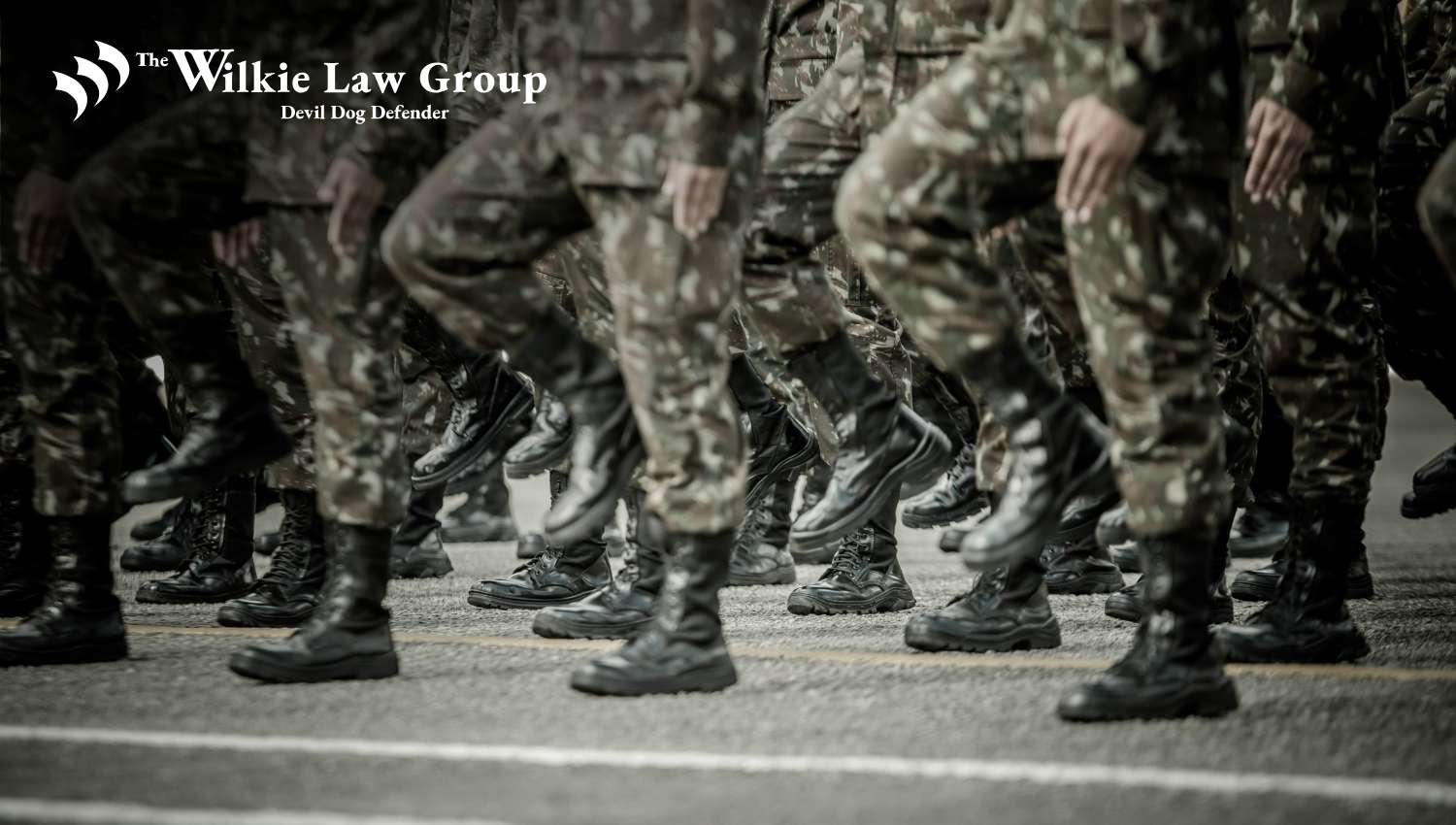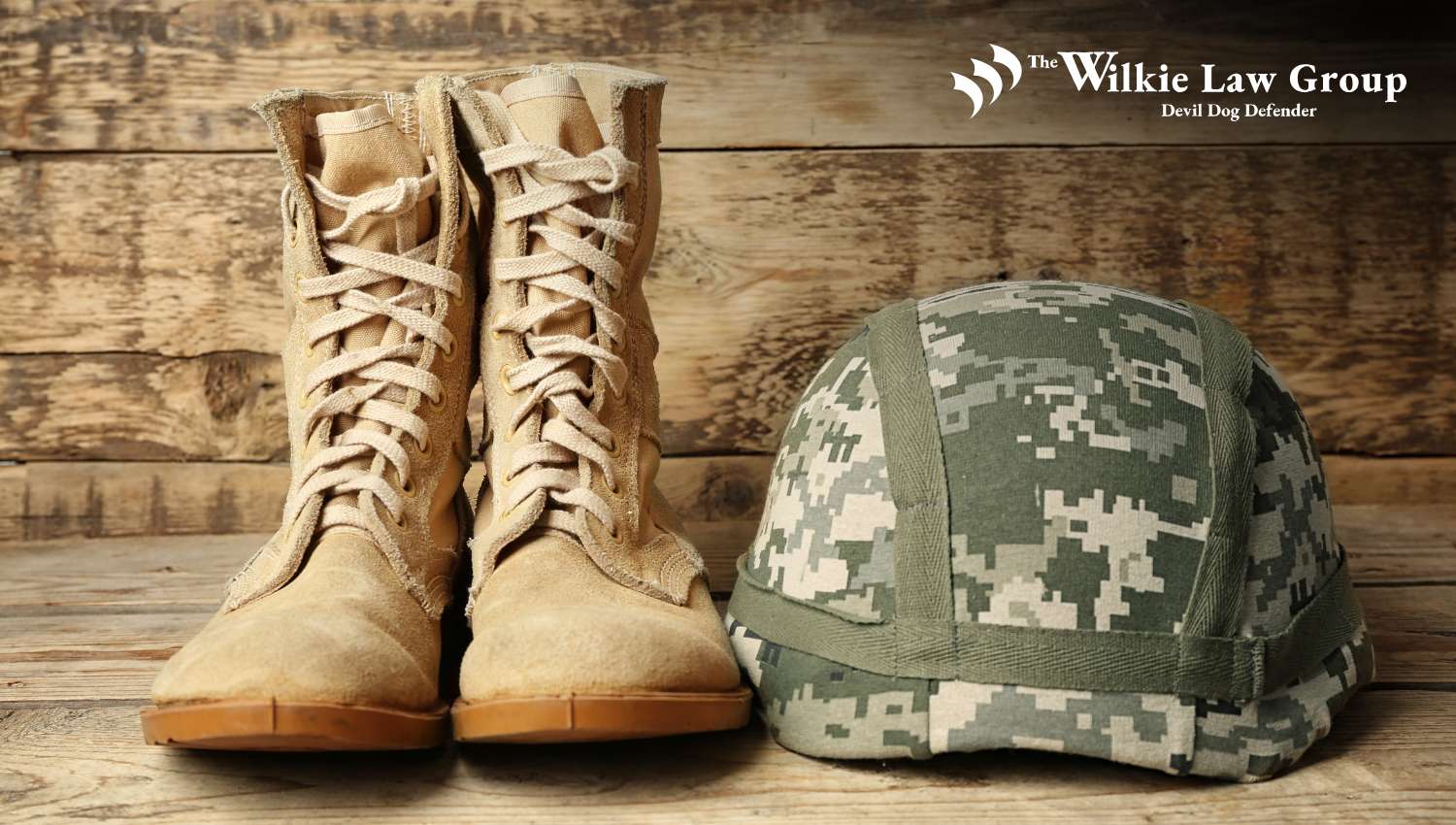Article 91 UCMJ
Military Defense Attorney for Article 91 Violations
Home » UCMJ Articles » Article 91 UCMJ
Military Counsel
UCMJ Articles
UCMJ Article 91 – Insubordinate Conduct Toward Warrant Officer, Noncommissioned Officer, or Petty Officer
Table of Contents

Disrespecting or disobeying a superior in the military can lead to serious consequences. Enlisted service members accused of insubordinate conduct toward a warrant officer, noncommissioned officer, or petty officer face the risk of court-martial proceedings, a bad conduct discharge, and even potentially a dishonorable discharge.
If you or a loved one is facing charges under UCMJ Article 91, The Wilkie Law Group is here to provide a strategic and aggressive defense on your behalf. Based in Jacksonville, North Carolina, our law firm serves enlisted service members in all military branches, ensuring they receive strong legal representation when accused of things like violating a lawful order, using disrespectful language, or engaging in willful disobedience.
As a Marine veteran himself, Aden Wilkie understands the military justice system firsthand, including how the military prosecutes Article 91 violations and the severe punishments that can result from these charges. He and his team are ready to put in the work to protect your rights, your rank, and your future.
Call (910) 333-9626 or reach out online to speak with an experienced Jacksonville military criminal defense attorney at The Wilkie Law Group today.
What is UCMJ Article 91?
The punitive articles of the UCMJ (Uniform Code of Military Justice) are designed to uphold good order and discipline within the military justice system. Within these articles, Article 91 (10 U.S. Code § 891) addresses insubordinate conduct by enlisted service members toward a warrant officer, noncommissioned officer (NCO), or petty officer.
There are three main offenses under UCMJ Article 91:
- Disrespect toward a warrant officer, NCO, or petty officer
- Striking or assaulting a warrant officer, NCO, or petty officer
- Willful disobedience of a lawful order from a warrant officer, NCO, or petty officer
The classification of each offense depends on the circumstances and whether the accused acted with intent. If you are facing an Article 91 insubordinate conduct charge, it is important to understand the consequences and consult a Jacksonville military defense attorney like Aden Wilkie right away.

What are Warrant, NCO, and Petty Officers?
In the context of military law, warrant officers, non-commissioned officers (NCOs), and petty officers all hold leadership positions within the armed forces, but they have different roles, levels of authority, and legal standing.
- Warrant Officer – A highly specialized expert and technician who ranks above the highest enlisted ranks but below commissioned officers and serves as a bridge between the two.
Non-Commissioned Officer (NCO) – NCO ranks vary by branch (e.g., Sergeant in the Army, Corporal in the Marine Corps), but they generally start at E-4 or E-5, depending on the service. - Petty Officer (PO) – The Navy and Coast Guard equivalent of a non-commissioned officer in other branches.
What Does Insubordinate Conduct Mean?
Insubordinate conduct refers to any action where an enlisted member disobeys or disrespects a superior noncommissioned, warrant, or petty officer. Under Article 91 UCMJ, this can include using disrespectful language, refusing to follow a lawful order, or even assaulting a superior officer. An incident is considered insubordination even if the officer is not in the same military branch or directly in the service member’s chain of command.
In the military justice system, insubordinate conduct is taken seriously because it threatens the good order and discipline that the military prides itself on. As such, a service member who is convicted of this offense through court martial proceedings can face severe punishments, including dishonorable discharge, total forfeiture of pay, and time in confinement.
Whether the behavior was an intentional act or happened in the heat of the moment, the circumstances surrounding the case can impact the consequences. If you have been accused of insubordinate conduct toward a superior officer, a North Carolina court martial lawyer can help protect your rank, pay, and future in the military.

UCMJ Article 91 Examples
- Refusing a direct order: A service member willfully disobeys or refuses to follow a lawful order given by a superior officer.
- Physically assaulting a superior: An enlisted member strikes, pushes, or physically attacks a warrant officer, NCO, or petty officer.
- Mocking or undermining a superior: A service member makes jokes or publicly disrespects a superior officer in front of others, on social media, or through text messages.
- Ignoring a senior’s presence: A military member refuses to acknowledge a warrant officer, NCO, or petty officer, such as failing to salute or walking away while being addressed.
- Threatening a superior: A service member makes verbal or physical threats against a warrant officer, NCO, or petty officer.
Elements Required to Prove a Violation of Article 91
To convict a service member of violating Article 91 UCMJ, the prosecution must prove several key elements.
First, they must show that the accused knew the individual they were interacting with was a warrant officer, noncommissioned officer (NCO), or petty officer and that the officer was acting within their official duties.
Next, at least one of the following must be proven:
- The accused used language or behavior that would be considered disrespectful,
- They physically assaulted or struck the superior officer, or
- They engaged in willful disobedience by refusing to follow a lawful order.
If found guilty, the enlisted member could be punished by dishonorable discharge, total forfeiture of pay, or time in confinement.

Article 91 UCMJ Punishment
A conviction under Article 91 UCMJ can lead to serious consequences that impact both a service member’s military career and future.
The maximum punishment depends on the severity of the offense and the accused’s prior service record. Penalties may include a reduction in rank, loss of military privileges, and forfeiture of pay, which can create financial hardship.
More severe cases—such as assaulting a warrant, noncommissioned, or petty officer—can result in confinement and a dishonorable discharge, which ends a military career permanently. A dishonorable discharge also creates difficulties in finding civilian employment, as it stays on a person’s record and can limit opportunities.
Because of the long-term impact that comes with an Article 91 UCMJ conviction, it is important to seek legal help as soon as possible.
How Military Defense Attorney Aden Wilkie Can Help Defend Against Article 91 Charges
Facing Article 91 charges for insubordinate conduct can put a service member’s career and future at risk, but experienced Jacksonville military defense lawyer Aden Wilkie has the experience and dedication needed to fight back.
With extensive knowledge of military law and a strong track record of defending service members of all branches, he takes a personalized approach to every case, carefully examining the details to build the best possible defense. He understands the intricacies of military justice and works tirelessly to protect his clients’ rights, reputations, and careers.
Whether challenging the evidence, negotiating for reduced penalties, or advocating aggressively in court, The Wilkie Law Group is committed to helping service members with legal challenges and achieving the best possible outcome.

Contact The Wilkie Law Group for Aggressive Article 91 UCMJ Violation Defense
If you or a loved one have been accused of insubordinate conduct under Article 91, securing the right legal representation is crucial to protecting your military career and future. The Wilkie Law Group in Jacksonville, NC, is dedicated to providing aggressive and strategic defense for service members facing military justice proceedings.
Jacksonville Article 91 defense lawyer Aden Wilkie understands the serious consequences of an insubordinate conduct charge, from potential loss of rank and pay to a dishonorable discharge. With his extensive experience in military law, he will carefully evaluate your case, develop a strong defense strategy, and fight to obtain the best results for your case.
Call (910) 333-9626 to schedule a confidential consultation, or contact us online to get the legal support you need.
Contact an Article 91 Defense Attorney
You’ve dedicated yourself to serving your nation; now, let us give back by protecting your future and supporting you during this difficult period. Get in touch with our experienced legal team for a confidential consultation by calling (910) 333-9626 or filling out our convenient online contact form today.
